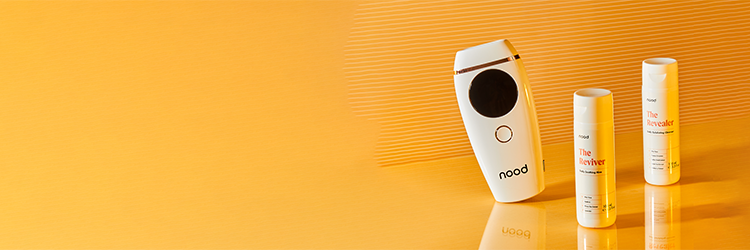
With more and more clinical research and consumer interest in nootropics, there’s a burgeoning new class of nootropic technologies. These are physical, hardware devices which aim to improve human cognitive function.
But are any nootropic technologies proven in clinical studies to work? Do they come with risks? Which nootropic technologies have the most research backing? And how do they compare to nootropics in supplement form?
In this article we’ll answer all of these questions and more, as we review some of the most promising nootropic technologies available today, as well as those coming soon.
We'll review the OmniPEMF, the Haelo, and Neuralink.
We'll also share some research-backed nootropic supplements that may be a better option given the early stage of nootropic technology.
OmniPEMF

Image credit: GlobeNewsWire
The OmniPEMF is an electromagnetic stimulation device worn on the head. The brand's website makes various health claims, including that this product can improve focus.
The OmniPEMF was tested in a to assess its effects on focus and other cognitive parameters.
This clinical trial was published in an open access journal, which means that any individual or organization can publish to it.
This is a lower quality of evidence in our opinion than studies published in peer-reviewed medical journals, which is what we typically cite on Illuminate Health when we reference clinical trials.
To test for attention, trial participants were subjected to a clock test and were asked to answer how many times a dot skipped instead of shifted on a visual field.
Participants using the OmniPEMF device had faster answers than control subjects, suggesting that the device may improve focus or speed.
In the Acknowledgements section of the clinical trial, it references that this study was “supported” by the the manufacturer of OmniPEMF without detailing the nature of this support.
Given that this study was published in an open access journal and supported by the device manufacturer, we recommend that consumers disregard the results.
We consider OmniPEMF to have the potential to improve focus, but we'll wait to consider recommending this product until it's been tested in a clinical trial published in a peer-reviewed medical journal.
Haelo

Image credit: Haelo
The Haelo device uses similar technology to that behind the OmniPEMF: pulsed electromagnetic field (PEMF) therapy.
Their technology is patented and the brand's website claims that targeted PEMF pulses can improve mental clarity, although Haelo is positioned more as a workout recovery product.
Haelo was shown in a clinical trial to improve sleep quality. However, the sample size of five was relatively low, and we can't find evidence that this trial was published in a peer-reviewed medical journal.
While sleep is indirectly associated with cognitive function, we can't find any clinical evidence that Haelo directly improves cognitive function.
The Haelo website has a number of health claims we consider to be questionable, such as the suggestion that the device "emits a 6 ft. wide therapeutic field all around your body."
There is no citation for this claim at the time of updating this article.
For consumers set on purchasing a PEMF device, we would recommend OmniPEMF over Haelo because we consider its clinical backing and price to be superior.
Neuralink

Image credit: Deezen
The most promising nootropic technology isn’t available for sale yet, but may be within the decade.
Elon Musk’s company Neuralink aims to produce neural implants which will allow the brain to directly interface with computing devices.
The first applications of the technology are simpler in scope, like treatment of Parkinson’s and spinal cord injury. But due to the underlying technology, there is a potential for the device to be able to significantly improve human intelligence beyond any current technology or consumable product.
Being able to directly influence neuronal function creates the possibility of drastic advances in human intelligence, caused by a brain synced with artificial intelligence for synergistic effects.
Neuralink initially planned to commence human trials in 2021, but the company failed to meet that mark and is recruiting participants for a clinical trial at the time of updating this article.
We will update this article when Neuralink's clinical trials are completed with the results.
Our Clean Nootropic PicksWe receive compensation when readers purchase the products or services we recommend.

Illuminate Labs Ginkgo Biloba Extract is our top herbal nootropic pick.
A published in the Psychopharmacology journal found that ginkgo biloba supplementation improved attention and cognitive performance in healthy, young adults.
Mind Lab Pro by Performance Lab is our top multi-ingredient nootropic pick.
This is the first Illuminate Labs Certified supplement, and has been shown to be effective for short-term cognitive improvements in two clinical published in peer-reviewed journals.






















































































































































































































































































































































































































































































































































































































































































































































































































































































































